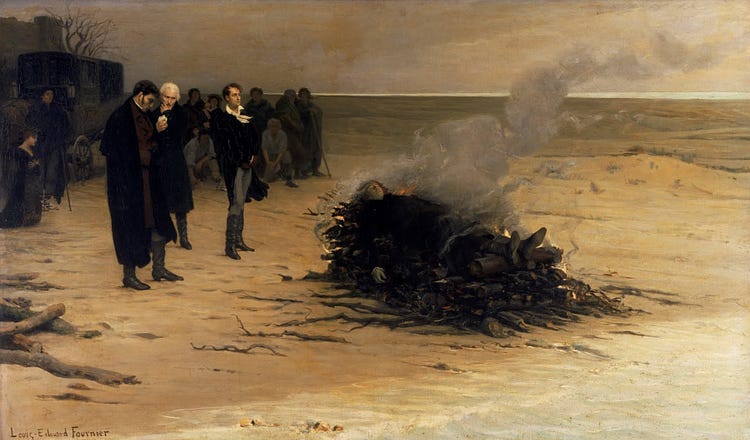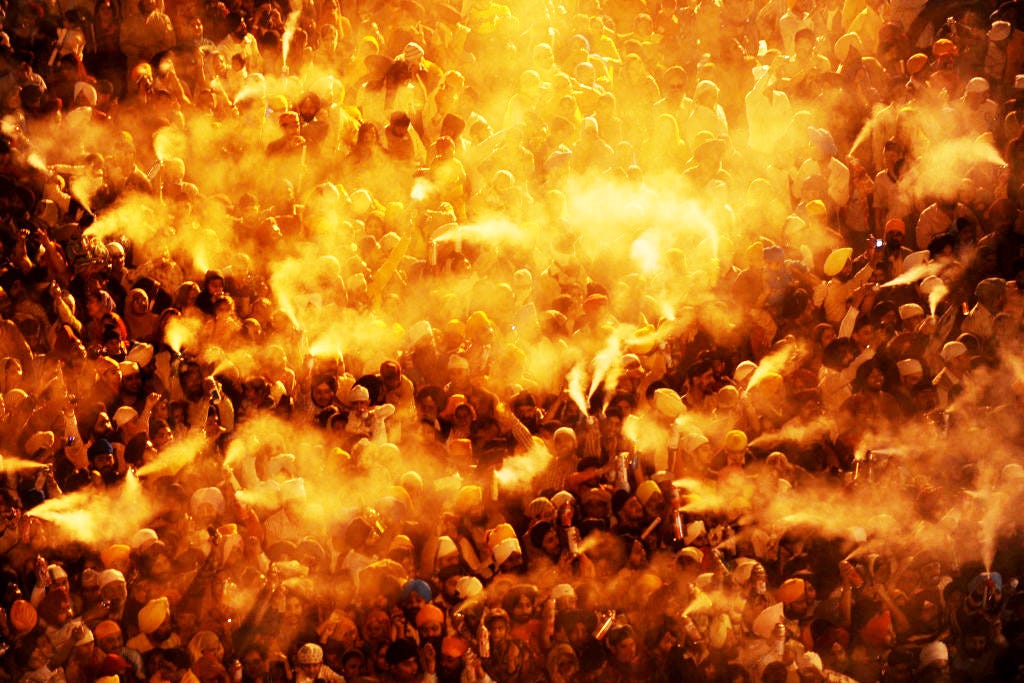
Welcome back to Douglas Murray’s Sunday column, Things Worth Remembering, where he presents passages from great poets he has committed to memory—and explains why you should, too. To listen to Douglas read Percy Bysshe Shelley’s quiet, haunting poem “Music, When Soft Voices Die,” click below:
Like Keats, Percy Bysshe Shelley is one of the hardest poets to write about, because he is among the most touching. It is not just the output, but the life, the purity of ideas as well as the person: his radical pamphlet, “The Necessity of Atheism,” got him expelled from Oxford. He thought it was worth it.
What did they think they were doing, the Romantic revolutionaries like Shelley? In a way, he and other Romantics were the precursors of the European Revolutions of 1848, Karl Marx, and more. They believed society could be reformed by critics and poets, the “unacknowledged legislators” of mankind, as Shelley put it in his 1821 essay, “A Defence of Poetry.” Yet while the old gods were dying, the Romantics were just a little too early for the new ones.
Even if you wanted to be cross with Shelley for his idealism, or where it led (as if any of us has any idea where our ideas might lead), it is hard to remain cross with him because he pursued his ideas with such pure intention. He was touched neither by the utter innocence of Keats nor the utter cynicism of Byron. He was trying to create something new. It was just never clear exactly what that was.
His work is sometimes bizarre, convoluted, and unrewarding, like “The Revolt of Islam” (which is not about Islam).
It is also sometimes so devastatingly simple you wonder how two works could come from the same head. He could write a great poem like “Ozymandias,” for instance, filled with unforgettable imagery. No one can go through a desert kingdom, or see any toppled statue, and not have that poem in their head once they have read it.
But when he stretched himself out, he often missed. His long ode on the death of Keats is a poignant example. Shelley poured himself into “Adonais.” Yet what is he saying in it, beyond lamenting that his friend is dead? On one page his lines are filled with the tumult of mourning. “I weep for Adonais—he is dead!” Yet soon he is trying to make great claims like “He lives, he wakes—’tis Death is dead, not he.”
It is like watching someone willing themselves into a belief he cannot hold. In the end, what matters is not the sense or the consistency, but what he manages to say along the way.
At one point, Shelley says:
Peace, peace! he is not dead, he doth not sleep—
He hath awakened from the dream of life.
That line alone is worth all the theological confusion elsewhere.
Some years ago I was walking around a cemetery in the north of Scotland when I came across the grave of a British airman who had been shot down during World War II. The headstone had been erected by the young man’s parents. And what, beyond his name and dates, was the inscription?












